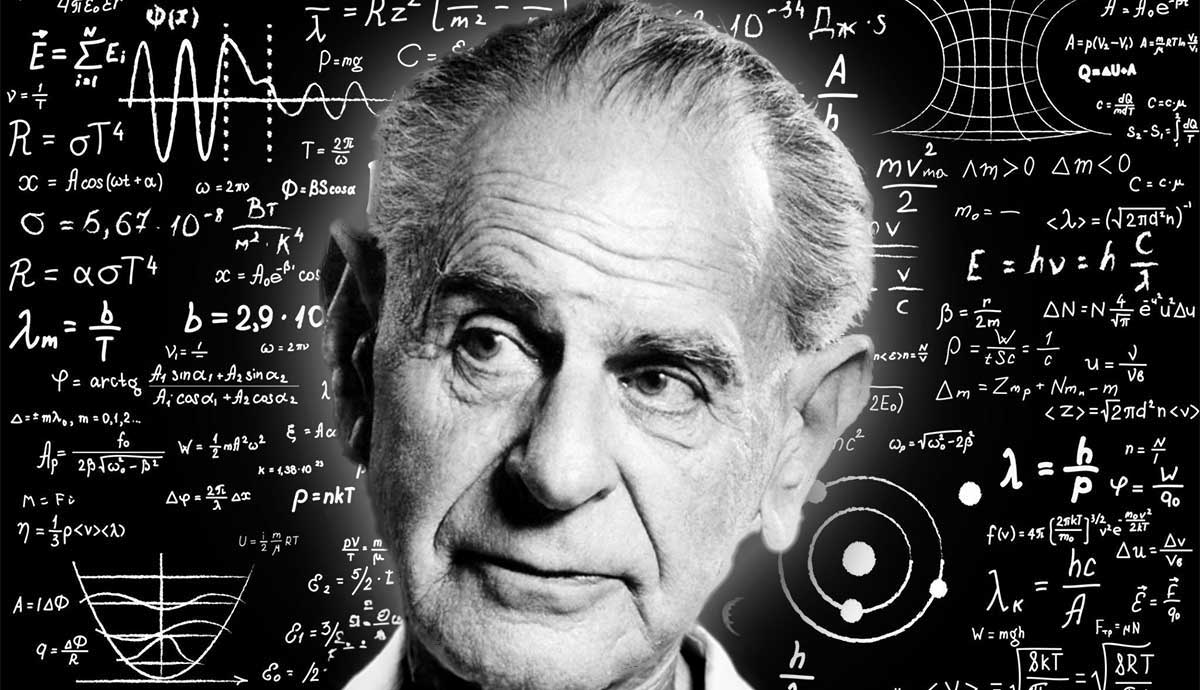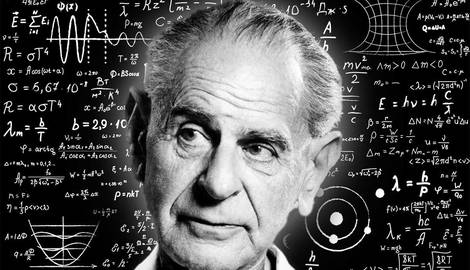
What was Karl Popper’s conception of science? This article begins with a discussion of this question in general, framing the subsequent discussion of Popper’s view. It then moves on to discuss Popper’s place in the history of science and in the history of the philosophy of science. We will explore the idea of falsification, along with some of its implications: its use to distinguish between science and non-science, the idea of science as a process, and Popper’s skepticism regarding theoretical confirmation.
What Counts as Science (According to Karl Popper)?

Karl Popper’s theory of falsification counts as a distinctive answer to one of the most difficult questions in the philosophy of science; namely, what counts as science? It is worth beginning with a discussion of the problem itself, before moving on to discuss Popper’s answer to it.
The question of what counts as a science is the source of profound disputes, and some measure of agreement can be found only when analyzing the most uncontroversial seeming cases. The so-called “hard” or “natural” sciences—physics, biology, chemistry—tend to be fairly uncontroversial in this regard. However, as contemporary philosopher of science Peter Godfrey-Smith points out, there is one view on which theoretical physics has become less scientific and more concerned with building mathematical models than is appropriate for a science.
The “border region” between science and non-science is occupied by a fluid set of fields, including but not limited to economics and psychology (now largely accepted as sciences), anthropology, archaeology, and linguistics.
Why does this matter? Partly, it has to do with the popular conception of science as suggesting rigor, realism, and the production of objective knowledge rather than subjective interpretations. Scientia in the medieval world referred mostly to logic demonstrations, and so to necessary truths. A further complication is that the category of science and disputes over it is a pretty parochial, Western phenomenon.

What do we make of people in other parts of the world doing investigations which clearly overlap with areas of scientific concern, but without any particular desire to call what they’re doing a science? The cultural specificity of scientific practice, as well as discourse over the term “science,” is another source of significant controversy.
Godfrey-Smith suggests that in asking what counts as a science, we are really after the answer to two different questions. First, we want to offer a general account of how humans come to understand the world around them. Second, we want to understand what makes the work that has descended from the Scientific Revolution in Europe different.
He leaves us with a further question; is science really one thing, or are we, as philosophers, tempted to generalize across disciplines that are not especially similar to one another? Should we spend more time focusing on what makes the various scientific disciplines different, rather than what makes them similar?
Karl Popper and the Vienna Circle

Turning now to address Karl Popper himself, it is worth saying something about the appeal of his work. Popper is one of the few philosophers of science whose work has been used to help settle debate amongst scientists, and as such, he is probably the best-known philosopher of science among scientists.
The appeal of his view of science is that it is clear and quite simple, in the sense that it relies on only a couple of core propositions about science, and that the view of science it presents is consistent with scientists’ own self-conception. In particular, it is a theory that implies a certain conception of the scientific virtues which many scientists seem to have found to their liking (more on that later).
Popper was an Austrian, and his career—as with many great intellectuals of the 20th century—began in Vienna. He, therefore, had some contact with a group of philosophers known as the Vienna Circle, who adopted a doctrine called logical positivism. The logical positivists developed a view about what science was as a consequence of adopting a certain view about language. Popper, in contrast, chose to theorize about science directly.
Science and Pseudoscience

As indicated above, one of Popper’s most important contributions to the philosophy of science lay in his attempt to distinguish scientific fact from non-scientific fact. In other words, he wanted to distinguish science from pseudoscience.
The solution Popper found to this problem was falsificationism, which claimed that a certain hypothesis is scientific if and only if it has the potential to be refuted by some possible observation. On this conception of it, science necessarily involves risk.
Popper criticizes the theories of Marx and Freud on these grounds—Marxists and Freudians will never accept that any fact refutes their theories, and will always find some way to accommodate it. Certainly, some Marxists and Freudians do exactly this, but whether this is a damning criticism of Marxism and Freudianism as ideologies isn’t so clear.
Popper’s theory of falsification is, in part, expressive of a profound skepticism about confirmation. In Popper’s view, we never confirm theories, but merely fail to falsify them. This latter point is much more controversial than his attempt to define what science is.
Certainty and Falsification

Most philosophers of science accept that we can never be 100% certain of our answers to any factual question. What’s controversial about Popper’s theory is that he appears to suggest that we can never even increase our degree of certainty. All we can say of a certain theory is that it has not yet been falsified. The only reason not to keep testing all of our theories, no matter how often we have tested them in the past and how ironclad they appear, is strictly practical. In principle, it would be better if we keep testing them forever.
Of course, to explain why we should test newer or shakier theories rather than those which have not been falsified many times appears to seek explanatory recourse to some notion of increased certainty. Regardless, although we might think that this view actually expresses a fairly profound skepticism about the possibility of developing anything we might call scientific truth, Popper is not skeptical. He still believes that science is in the business of looking for true descriptions of the world, but that all we can do in the service of this project is to try one theory after another, forever.
Karl Popper on Scientific Change

Popper’s theory of falsification also implies a certain theory of scientific change—of the progression of science through its various hypotheses. Popper conceives of science as operating in two-step cycles.
Stage 1 is the stage of conjecture, wherein scientists offer a hypothesis about how the world is. In Popper’s view, a good hypothesis is one which takes risks, one which is ambitious.
Stage 2 is an attempted refutation, and after a hypothesis has been falsified, the cycle can repeat. Although new hypotheses should not merely patch up the problems which have been presented by older ones, ideally, new hypotheses should learn from or adapt to the failures of these previously falsified explanations.
This conception of scientific progress also implies a certain set of scientific virtues. For Popper, the ideal scientist has two sides. There is the creative, artistic side, and the rigorous, skeptical side, corresponding to Stage 1 and Stage 2 of the progression of scientific knowledge, respectively.
This poses the question of how far any one scientist ought to represent each of these sides, or whether scientific endeavor can take place perfectly well with some scientists posing as the blue-sky thinkers and others as the hard-nosed skeptics.
Two Criticisms of Karl Popper’s Work

There are various objections to Karl Popper’s way of thinking, and this article will conclude by sketching a couple of them.
Firstly, Popper’s attempt to distinguish science from non-science or pseudoscience appeals to an idea of risk-taking which might seem overly simplistic. For a start, the relationship between an observation and the theory that it might undermine is never simple. Understanding an observation’s explanatory status requires our understanding of the background assumptions behind it.
We can never reach the kind of self-evidence that Popper takes to be necessary for falsification to occur once we start to recognize this holism about testing, which is an idea due to W.V.O Quine. Connecting a theory to any given test for it is not straightforward at all.
Moreover, not all scientific theories posit or imply that any given observation totally undermines them. A theory might just say that a certain result is highly improbable. On Popper’s account, any such theory should be called pseudoscience. But this seems very strange and also ignores the role of probability in science. Popper’s theory does not appear to support an especially strong response to either of these objections.










